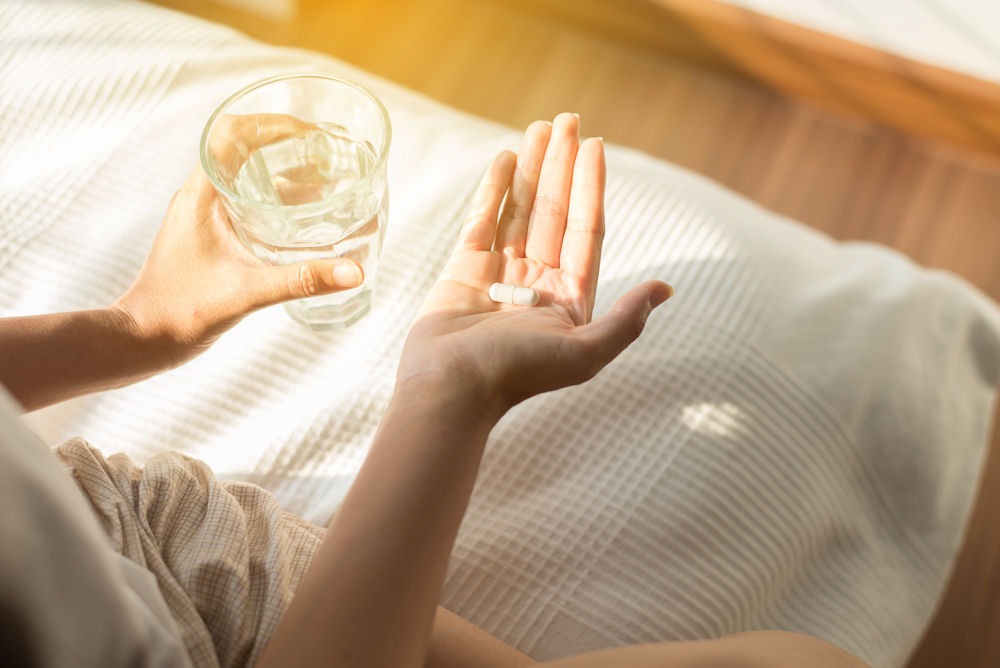There are many different kinds of substance abuse, triggered by a plethora of stimuli. Some individuals get hooked on alcohol after drinking recreationally; others take one hit of cocaine and are arrested for it for what seems to be a lifetime. However, some individuals are well-intentioned and still wind up hooked on substances as a result. This kind of substance abuse is born out of self-medication.
Oftentimes individuals feel they have no other way to get better or cope with their illnesses, be it mental or physical. As a result, they wind up hooked on painkillers, alcohol, or heroin. Regardless of the substance in question, self-medication is a dangerous game to play – one that many often lose. This is why it is imperative to understand the nature of self-medication. Not only that, but also its risks, how to get help to stop it.
What is Self-Medication?
Self-medication refers to the practice of individuals treating their health issues without professional guidance from a healthcare provider. This can include the use of over-the-counter medications, herbal remedies, or leftover prescriptions to manage symptoms or ailments. While self-medication can be convenient and cost-effective, it carries certain risks. These risks include misdiagnosis, inappropriate use of medications, and potential interactions with other substances. Individuals need to be aware of these risks and consider consulting a healthcare professional for proper diagnosis when necessary; otherwise, this can lead to substance dependency and chronic abuse.

People self-medicate for a variety of reasons, often stemming from the desire to alleviate physical or emotional discomfort. Many individuals may seek relief from anxiety, depression, or chronic pain when they feel that professional help is inaccessible. Some other barriers include financial instability and the stigma associated with substance use disorder.
Additionally, self-medication can be a coping mechanism in response to stressful life events or trauma, providing an escape from overwhelming feelings. However, while it may offer short-term relief, self-medication carries risks. These risks include dependence, adverse health effects, and the potential for worsening underlying issues. This makes it essential for individuals to seek appropriate care and support.
Self-medication refers to the practice of individuals treating their health issues with medication without professional guidance. Recognizing the signs of self-medication can be crucial in identifying potential health risks. Common indicators include the following:
- Frequently using over-the-counter medications for chronic issues
- Relying on alcohol or recreational drugs to cope with stress or emotional pain
- Exhibiting a pattern of avoiding professional medical help despite ongoing health problems
Additionally, individuals may start to develop a tolerance to substances, requiring higher doses to achieve the same effect. This can lead to substance dependency. Understanding these signs can help in addressing the underlying motivations for self-medication and seeking appropriate support and treatment.
Self-medication refers to the practice of individuals using drugs or remedies to treat their health issues without professional guidance. There are several types of self-medication, including:
- Over-the-counter (OTC) medications – These are readily available at pharmacies and include pain relievers, cold medications, and antacids, which individuals use to manage minor ailments.
- Herbal and natural remedies – Many people turn to plant-based treatments or supplements, believing them to be safer alternatives to pharmaceuticals for certain conditions.
- Prescription medications – Some individuals may misuse leftover prescription drugs from previous medical treatments for self-treatment of new symptoms; this can lead to complications and side effects.
- Lifestyle adjustments – This includes using diet, exercise, and other wellness practices to manage health concerns such as stress or insomnia without direct intervention.
- Alternative therapies – Techniques like acupuncture, massage, or homeopathy are also seen as forms of self-medication; this is when individuals seek relief from various conditions through methods outside conventional medicine.
Self-medication, while often seen as a quick and convenient solution for minor ailments, carries significant risks; these can lead to serious health implications. One of the primary concerns is the potential for misdiagnosis; individuals may incorrectly assess their symptoms and use inappropriate medications, resulting in ineffective treatment or worsening of the condition.
Additionally, over-the-counter medications can interact negatively with prescription drugs or exacerbate existing health issues. There’s also the danger of dosage errors, where individuals may take too little to be effective or too much. Furthermore, dependence on self-medication may delay necessary medical attention, potentially allowing underlying conditions to progress unchecked. Individuals must consult healthcare professionals when considering treatment options to mitigate these risks.

Does Self-Medicating Lead to Dependency and Addiction?
Self-medicating can often lead to dependency and addiction; individuals may turn to substances like alcohol, prescription medications, or illicit drugs to cope with emotions, stress, or mental health issues. While these substances may provide temporary relief, they can create a pattern of reliance; this makes it difficult for the person to manage their symptoms without them. Over time, the body may develop a tolerance, requiring more of the substance to achieve the same effect. Taking more to achieve the same effect increases the risk of addiction. Additionally, self-medication can mask underlying problems, preventing individuals from seeking professional help and fostering a cycle that is hard to break.
Common Substances Used to Self-Medicate
Common substances used for self-medication include over-the-counter medications like acetaminophen and ibuprofen for pain relief, as well as antihistamines for allergies. Many people also turn to alcohol, believing it can ease anxiety or stress; herbal supplements such as St. John’s Wort are often used for mild depression. Additionally, some may misuse prescription drugs, such as benzodiazepines, for their calming effects. It is important to recognize that self-medication can lead to potential risks. This includes dependency and adverse health effects, highlighting the need for careful consideration and, ideally, professional advice.
Co-occurring disorders and Self-Medication
Self-medication often emerges as a coping mechanism for individuals struggling with stress, anxiety, or other mental health issues. When people turn to substances to manage their symptoms, they may inadvertently exacerbate their conditions or introduce new ones. This is true whether it be alcohol, prescription medications, or illicit drugs. This cycle can lead to the development of co-occurring disorders, where the original mental health issue coexists with substance use disorders.
As individuals self-medicate to numb emotional pain or escape reality, their reliance on these substances can have many effects. These include impaired judgment, reduced coping skills, and increased vulnerability. They ultimately culminate in a complex interplay between mental health and addiction that requires comprehensive treatment approaches.
What are Co-Occurring Disorders?
Co-occurring disorders refer to the condition where an individual is affected by both a mental health disorder and an addiction simultaneously. Co-occurring disorders are also known as dual diagnoses. This combination complicates the treatment process, as each disorder can exacerbate the other. For example, a person dealing with depression may turn to alcohol as a form of self-medication; this, in turn, can worsen their mental health symptoms. Effective treatment requires an integrated approach. Good dual diagnosis treatment addresses both the mental health issues and the substance abuse concurrently to improve the chances of recovery.

Can You Get Help for Co-Occurring Disorders?
At Laguna Shores Recovery, help is available for individuals dealing with co-occurring disorders. Treatment typically involves an integrated approach that addresses both conditions concurrently. This dual-focused treatment may include a combination of therapies, such as cognitive-behavioral therapy (CBT), medication management, and support groups. Many treatment centers and mental health professionals specialize in co-occurring disorders. At Laguna Shores Recovery, we provide tailor-fit plans that cater to the complexities of each individual’s situation. Seeking help from a qualified professional is a critical first step towards recovery and improved overall well-being.
How to Help a Loved One Who is Self-Medicating
Supporting a loved one who is self-medicating can be challenging yet critical for their well-being. Begin by approaching the situation with empathy and understanding; engage in open, non-judgmental conversations about their feelings and habits. Encourage them to express their thoughts and emotions, which can help you better understand their motivations for self-medication. Suggest healthier coping mechanisms, such as mindfulness practices, physical activities, or creative outlets.
If their self-medication is severe, gently encourage them to seek professional help. Offer to accompany them to appointments, or help them find resources and support groups. Remember, patience and unconditional support are essential as they navigate their journey toward healing.

How to Stop Self-Medicating
Stopping self-medicating requires a multi-faceted approach, beginning with self-awareness and understanding the triggers that lead to this behavior. Acknowledge the emotions or situations that prompt the urge to self-medicate, whether they stem from stress, anxiety, or grief. Seeking professional help is crucial; therapists or counselors can provide tailored strategies to cope with these feelings effectively.
Additionally, developing healthy coping mechanisms can replace the desire to self-medicate. This may include engaging in physical exercise, practicing mindfulness, or cultivating hobbies. Surrounding oneself with a supportive network of friends and family also plays a significant role in recovery; it offers encouragement and accountability throughout the journey.
Help is Available at Laguna Shores Recovery
For those struggling with self-medicating, and consequently substance abuse as a result, Laguna Shores Recovery is here to help. We offer the utmost in individualized programs for addiction. If you or a loved one would like to find out more, you can contact us here.

 Matthew Beck B.A, M.A, LMFT
Matthew Beck B.A, M.A, LMFT 


